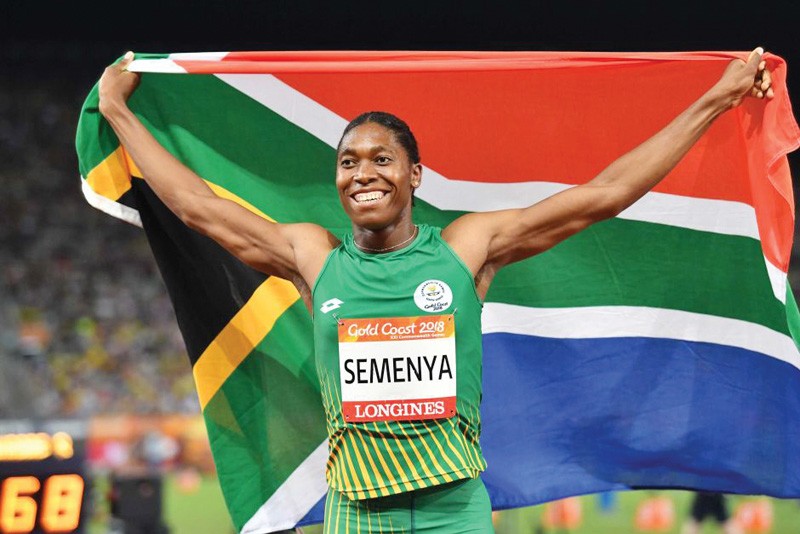Semenya gender case on CAA's agenda
Calistus Kolantsho | Friday April 12, 2019 12:35


The double Olympic champion dragged the International Association of Athletics Federations (IAAF) to CAS, seeking to overturn a new set of rules aimed at lowering the testosterone levels in some female athletes.
The new rules, which were put on hold pending the Semenya court challenge, require that female athletes with high testosterone levels lower them to within certain standards.
CAA vice president, Moses Bantsi said the Semenya issue will be discussed when the continental athletics body, holds its annual general meeting in Abidjan, Ivory Coast on Saturday.
“As a region we have concerns even though they have been pre-empted. One such issue is the Semenya case. The matter is going to be part of the discussions at the CAA congress,” Bantsi said.
“We are also going to discuss the IAAF decision on Diamond League, whereby they took a decision to remove long distance races that have always been dominated by Africa.”
The IAAF had, in the meantime, moved to amend the constitution over the gender rule, but CAS has said this should be put in abeyance.
The IAAF contend that Semenya and other female athletes that are classed as having differences in sexual development (DSDs) gain an unfair advantage due to their higher testosterone levels, but only in races between 400 and 1,000-metres.
Under its new rules, athletes classed as having DSDs must reduce their blood testosterone level to below five nmol/L for a continuous period of six months before they can compete. They must then maintain it below that level continuously.
Bantsi said IAAF decided to make the amendments and wanted them to be put in effect immediately, but the court turned them down.
He said CAS advised IAAF to wait for judgement in the Semenya case before the amendments could be implemented. CAS is expected to announce its decision on the Semenya case by end of this month.
On the issue of the Diamond League scrapping off long distance races, Bantsi said they feel IAAF wants to deprive Africa of more medals, and they are opposed to that.
Bantsi said while IAAF has taken a deliberate decision to elect its first woman vice president this year, Africa would miss out as it had no such succession plan in place.
“Africa should be united at the Doha IAAF Congress. We have learnt tough lessons before and we should avoid playing to the hands of the enemy. So whatever resolutions are made in Ivory Coast, they should be for the benefit of the continent,” Bantsi said.
Botswana Athletics Association (BAA) president, Thari Mooketsi echoed Bantsi’s sentiment, arguing, IAAF decisions always sideline Africa. He said this was a result of divisions within the continent. “If we are a team we could address our issues amicably, but there are gaps between our federations, that is why they take us lightly. This trend has been existing for a long time,” he said.
Mooketsi said during IAAF meetings, continents like Europe, caucus before the congress, and where they put across a motion, they support each other. He said that does not happen with Africans.
